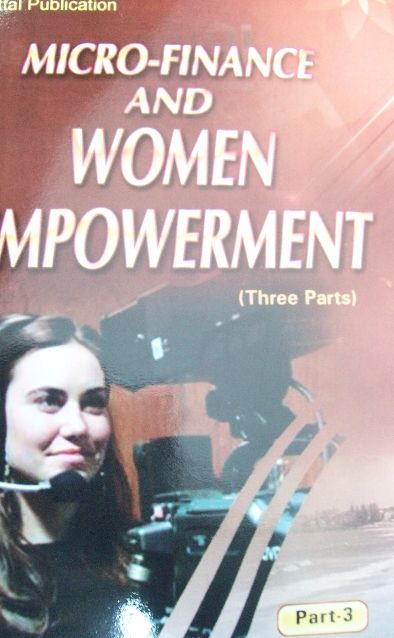Micro-Finance and Women Empowerment (3 Parts)
Regular price
Rs. 3,200.00
It has been a universally accepted fact that micro-financing is a very successful instrument for eradication of poverty. Most of the governments in developing countries are encouraging micro-financing for alleviation of poverty and empowerment of women in their countries. In India also NABARD has been playing a leading role in micro-financing programme for the last two decades now. This model involves the SHGs financing directly by the banking agencies viz. Commercial Banks (Public Sector and Private Sector), Regional Rural Banks (RRBs) and Co-operative Banks. It has encouraged lending through Self-Help Groups (SHGs) after achieving successful results from a pilot project of 500 SHG Bank linkage programmes in 1992. Now it is the largest micro financing programme anywhere in the world. As on Mar. "31, 2008 there were 34,77,965 SHGs which were formally linked to the banking system. The number of SHGs comprising only women members were over 90% About 6 crore poor households in the country have gained access to micro-financing from the formal banking system through the SHG-bank linkage programme. At present more than 400 women join the SHG movement every hour in India and one NGO joins micro-finance programme of NABARD everyday. This book has been divided into three parts, incorporates articles/research papers contributed by scholars who belong to different Universities, Colleges, institutions and professionals (some of them are from foreign countries). The contributors have presented their views analytically which are connected with the different aspects of micro-finance and Self-Help Groups performance and their role in socio-economic empowerment of women. The papers contributed for this book have been grouped in different Sections. Section I: Empowerment of Women through SHGs and Micro-Finance; Section II: Self-Help Group and Micro-Finance; Section III: Micro-finance and Poverty Reduction; Section IV: Women Employment Section V: Women Entrepreneurs; and Section VI: Gender Issues. Surely this book will be quite useful for policy makers, researchers, academicians, bankers, NGOs and SHGs.
Rais Ahmad (b.1958), M.Com., Ph.D. and FDPM (IIM-Ahmedabad), Chairman, Department of Agricultural Economics and Business Management, Aligarh Muslim University, Aligarh, worked as Professor in Management Studies for one year during 2005-2006 at Jamia Millia Islamia, New Delhi as well as Visiting Professor in MBA (Executive Programme,) Faculty of Engineering and Technology, during the same period. He has guided and is guiding PG Research Projects and doctoral theses. He is a keen researcher and has published a good number of research papers/articles in professional journals of repute and also published eight books. Presently he is engaged in doing a UGC major research project on Micro-finance.
Guaranteed Safe Checkout





